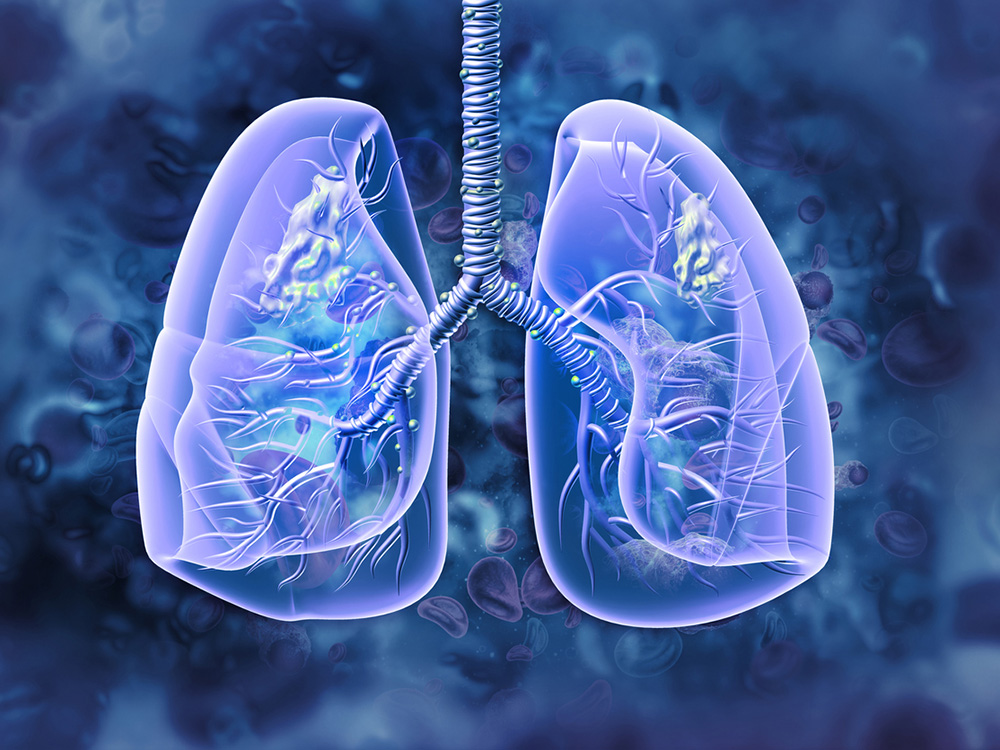
According to the LUNGevity Foundation, more than 230,000 people in the United States are diagnosed with lung cancer each year. This number equates to approximately one person every two minutes.
There were 2.1 million cases diagnosed worldwide in 2020, ranking lung cancer second behind breast cancer as the most common, and 1.8 million deaths from lung cancer, making it the most deadly type of cancer in the world.
Advances in immunotherapy have thankfully helped alleviate the patient burden. This progress is providing more treatment options beyond chemotherapy and radiation.
However, more is needed, which is why Alliance for Cancer Gene Therapy (ACGT) has funded scientists who are helping advance cell and gene therapy research for lung cancer.
As November is Lung Cancer Awareness Month, let’s review the latest progress in bringing new immunotherapies to patients with this hard-to-treat cancer.
Immunotherapy Progress for Lung Cancer
The latest U.S. Food and Drug Administration approval is the immunotherapy drug Opdivo® (generic name “nivolumab”) for use in non-small cell lung cancer (NSCLC) and other solid tumors. Opdivo can be used with chemotherapy before surgery in cases of early-stage NSCLC.
This approval is one of several immunotherapy or targeted therapy drugs for lung cancer. Immune checkpoint inhibitors like Opdivo have some limitations, however, so researchers are also pursuing cell and gene therapies like CAR T-cell therapy for lung cancer.
ACGT supports the potential of cell and gene therapy as a lung cancer treatment. Here is a summary of some recent developments in using cell and gene therapy for lung cancer.
ACGT Research Fellow focusing on tumor macrophages
ACGT is currently funding the work of Brian Brown, PhD, a researcher at Icahn School of Medicine at Mount Sinai Hospital. Dr. Brown has received a grant for his research into creating chimeric antigen receptors (CARs) that kill tumor macrophages – hopefully removing a major barrier to successful immunotherapy.
Macrophages are a type of cell that protects us from infections. However, tumor cells can reprogram macrophages to defend the cancer against T cells. This alteration of macrophages can render immunotherapy treatments for lung cancer ineffective. The macrophages essentially become a patient’s opponent instead of an ally.
Dr. Brown’s intent is to develop CARs that target macrophages in tumor cells while sparing those in healthy tissue. He provided an update on his research during the annual ACGT Scientific Advisory Council annual meeting in January of 2022. In preclinical testing of the programmed antigen receptors, Dr. Brown reported his treatment caused a significant reduction in lung tumor size in mice, as shown on imaging scans.
ACGT continues to look for innovative projects like Dr. Brown’s work. Our intent is to fund breakthrough research that can translate to clinical trials and eventually become widely accessible to cancer patients.
Other ACGT-funded cell and gene therapy research for lung cancer
ACGT began in 2001 with the mission of funding innovative scientists who were working to develop cell and gene therapies for cancer. These therapies have the potential to transform cancer treatment and bring more options to patients who wish not to receive chemotherapy and radiation, or patients who already tried those therapies.
ACGT funded the work of Carl June, MD, of the University of Pennsylvania, and led to a groundbreaking clinical trial using CAR T-cell therapy for patients with leukemia. This led to several FDA-approved CAR T-cell therapies for leukemia and other blood cancers like lymphoma and multiple myeloma.
ACGT’s focus is now on lung cancer and other solid tumors, and the organization has a long history of funding researchers working to develop novel cell and gene therapies for this disease. Aside from Dr. Brown, our lung cancer Research Fellows include:
With your donation, Alliance for Cancer Gene Therapy can increase its financial support of each research program and possibly fund a higher number of programs. Please consider donating today to join our alliance and help us improve the future of cancer treatment. You can also sign up for our monthly email newsletter and other communications to learn more about cell and gene therapy for lung cancer and other cancers.
Page sources
- Lung Cancer Statistics. LUNGevity Foundation. Retrieved from: https://www.lungevity.org/for-supporters-advocates/lung-cancer-awareness/lung-cancer-statistics. Accessed: 03/08/2022.
- Cancer. World Health Organization. Retrieved from: https://www.who.int/news-room/fact-sheets/detail/cancer. Accessed: 09/25/2023.
- FDA approves neoadjuvant nivolumab and platinum-doublet chemotherapy for early-stage non-small cell lung cancer. U.S. Food and Drug Administration. Retrieved from: https://www.fda.gov/drugs/resources-information-approved-drugs/fda-approves-neoadjuvant-nivolumab-and-platinum-doublet-chemotherapy-early-stage-non-small-cell-lung. Accessed: 03/08/2022.
- The First Systemically Delivered Gene Therapy Used for Cancer in Humans. Genprex. Retrieved from: https://www.genprex.com/technology/reqorsa/. Accessed: 03/04/2022.
- Genprex Announces First Patient Dosed in Phase 1/2 Acclaim-1 Clinical Trial of REQORSA™ Immunogene Therapy in Combination with Tagrisso® to Treat Non-Small Cell Lung Cancer. Biospace. Retrieved from: https://www.biospace.com/article/releases/genprex-announces-first-patient-dosed-in-phase-1-2-acclaim-1-clinical-trial-of-reqorsa-immunogene-therapy-in-combination-with-tagrisso-to-treat-non-small-cell-lung-cancer/. Accessed: 03/04/2022.
- Our Science. A2 Bio. Retrieved from: https://www.a2bio.com/science/. Accessed: 03/04/2022.
- A2 Bio Publishes Key Preclinical Findings Demonstrating Potential of Its Highly Selective Tmod™ Cell Therapy Platform to Revolutionize the Treatment of Solid Tumors in Select Patients. Business Wire. Retrieved from: https://www.businesswire.com/news/home/20220302005008/en/A2-Bio-Publishes-Key-Preclinical-Findings-Demonstrating-Potential-of-Its-Highly-Selective-Tmod%E2%84%A2-Cell-Therapy-Platform-to-Revolutionize-the-Treatment-of-Solid-Tumors-in-Select-Patients. Accessed: 03/04/2022.



